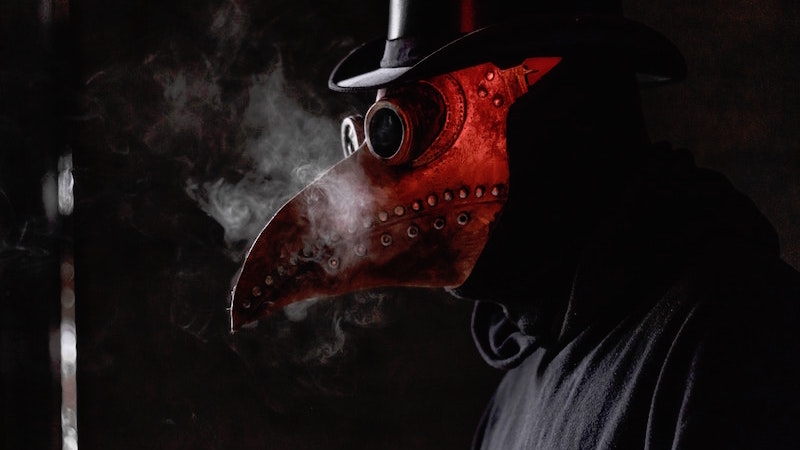‘Incel’ – the issue is shame, not physical appearance
- 11 September 2020
- Posted by: Michael H Hallett
- Category: News , Radicalisation ,

On 24 February 2020, a 17-year-old boy with a machete entered the Crown Spa massage parlour in Toronto and attacked three people. Ashley Arzaga, 24, died at the scene. Two others, a woman and a man, were seriously injured. The boy reportedly identified with the ‘incel’, or involuntary celibacy movement.
The boy was charged with first-degree murder and attempted murder under Canada’s Youth Criminal Justice Act. As a minor, his identity is protected.
On 19 May, Toronto police announced that the ‘incel’ ideology met the Canadian Criminal Code definition of terrorist activity. The charges against the boy were revised. If convicted of terrorism, he may face an automatic life sentence.
What is the ‘incel’ movement?
Wikipedia describes the ‘incel’ movement as “an online subculture who define themselves as unable to find a romantic or sexual partner despite desiring one.”
The term ‘incel’ first emerged on a Canadian website dating from 1993. Started by a student called Alana, it was a ‘lonely hearts club’ for people who were long-term singles or had never had sex.
During the 2000s, increasingly misogynistic and violent online communities appropriated the ‘incel’ term and developed into a subculture. In 2017, Reddit banned an incel community with 40,000 members. There is also a subculture of female incels, ‘femcels’, though its members don’t engage in the glorification of violence as their male counterparts do.
My Twisted World
Since 2014, six mass murders have been identified as ‘incel’-driven, resulting in 44 deaths. The first of these was the 2014 Isla Vista shooting at the University of Southern California, Santa Barbara campus, in which 7 people died. The perpetrator was Elliot Rodger, who left behind an autobiography titled My Twisted World. Rodger has since become the ‘incel’ movement’s poster boy.
My Twisted World, Rodger’s 141-page ‘manifesto’, charts his harrowing descent into a world of frustration, humiliation, alienation, indoctrination—and ultimately his misperceived redemption by killing women. With tragic irony and a pathetic twist that epitomises Rodger’s life, most of his victims were male.
The same irony is evident in Toronto’s Crown Spa attack—one of those seriously injured was a male. It’s also no coincidence that the attacker targeted a place that gives ‘exotic’ massages—usually a code word for erotic massages. The attacker targeted those giving or receiving the pleasure he felt unable to have.
The process of radicalisation
Upgrading the charges against the boy, Canadian police noted that, “Terrorism comes in many forms and it’s important to note that it is not restricted to any particular group, religion or ideology.”
Terrorism is the end product of the process of radicalisation. This is an 8-stage emotional process that begins with feelings of discrimination—that a person is different from others in some unalterable way, and thus discriminated against.
In The Sexual radicalisation of Elliot Rodger, I describe this process and map it against comments in Rodger’s autobiography as his life slowly unravels through his teen years and he confronts his inability to attract sexual partners.
The process of radicalisation shows that the Canadian police are correct: the ‘incel’ ideology is functionally identical with all forms of terrorism, including religious fundamentalism, racism and Nazism.
Unconscious shame
Among the ‘incel’ community—and this is also true of ‘femcels’—the prevalent belief is that physical appearance is their unalterable point of difference.
Wikipedia refers to “a set of commonly-held beliefs in incel communities, which include biological determinism, fatalism and defeatism for unattractive people.”
This is a skin-deep view of the problem. The real action is happening beneath the surface, in the realm of unconscious shame. ‘Incels’ and ‘femcels’ are people who unconsciously feel their body shame and sexual shame to an extreme. Such an extreme that—for ‘incels’ at least—violence seems the only option.
It isn’t.
Missing ingredient
Many incels subscribe to what they call the ‘80/20 rule’—that “80% of women are attracted to the top 20% of men.” What determines sexual attraction isn’t physical attractiveness—it’s the amount of life force. Men and women alike are drawn to people who exude energy, vivacity, humour and joie de vivre.
Men and women alike are drawn to people who exude energy, vivacity, humour and joie de vivre. Stunted by sexual shame and social anxiety, this—not physical appearance—is the missing ingredient in incels’ lives.
Stunted by sexual shame and social anxiety, this—not physical appearance—is the missing ingredient in incels’ lives.
In How shame affects life energy, I describe how unconscious energy physically saps our life force by causing us to pit our energy against itself to shut down the possibility of socially unwanted sexual expression—the exact issue incels have.
The answer to the incel movement isn’t mass shootings or attacking erotic massage parlours with machetes. It’s releasing unconscious shame, and its physical counterpart, releasing bound energy.
Photo by Sara Kurfeß on Unsplash
